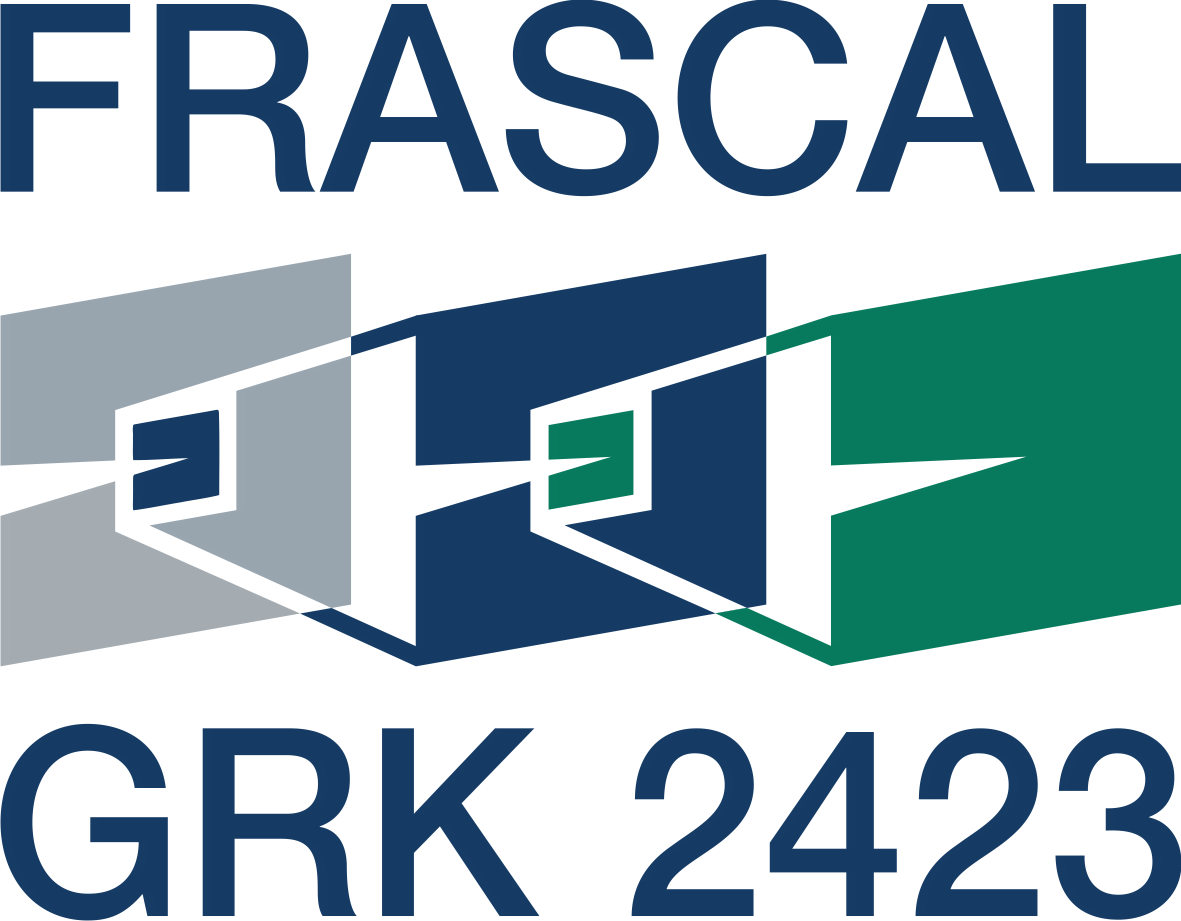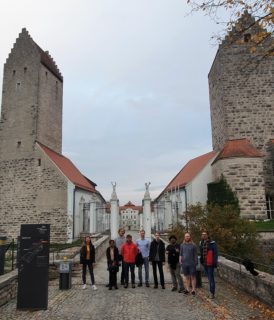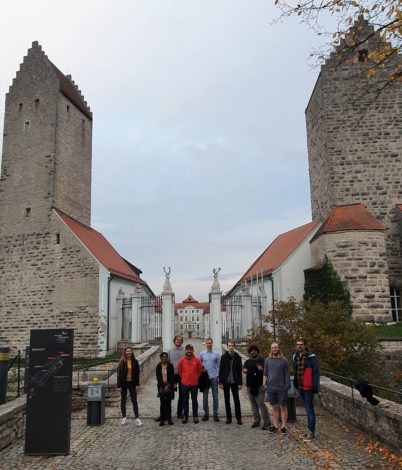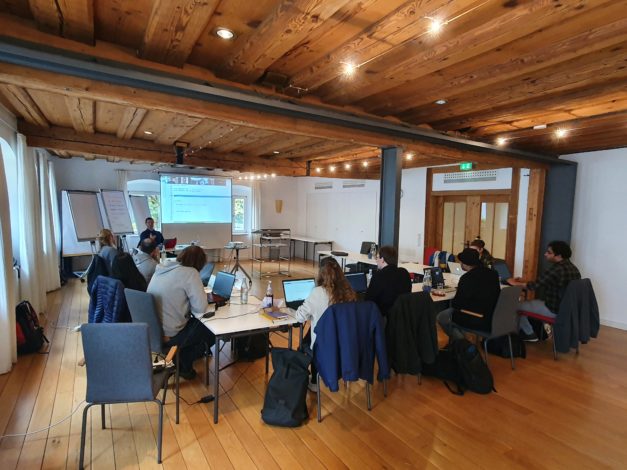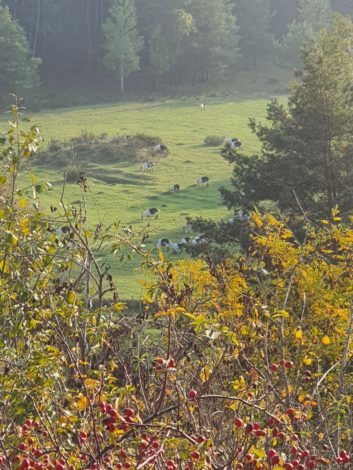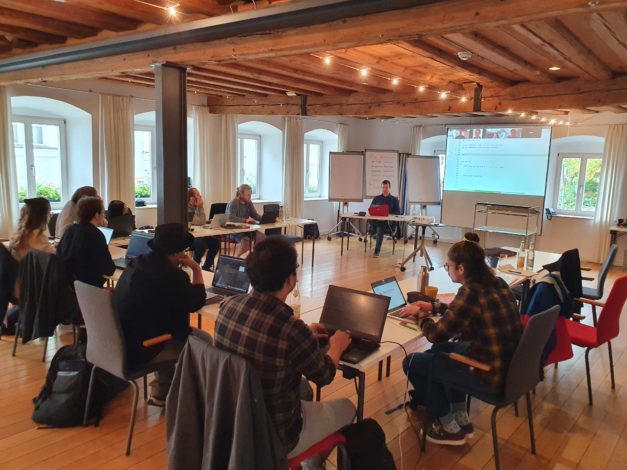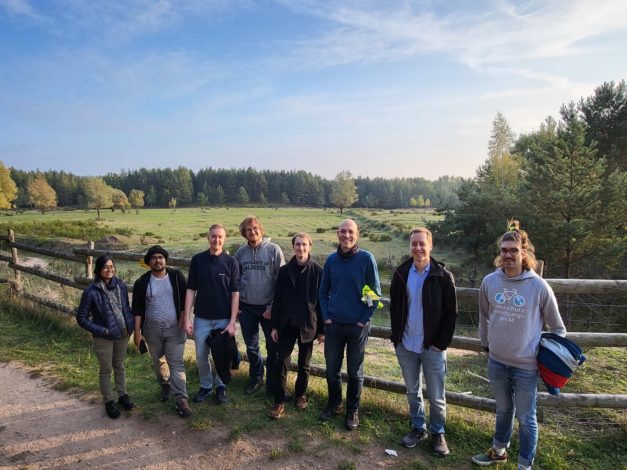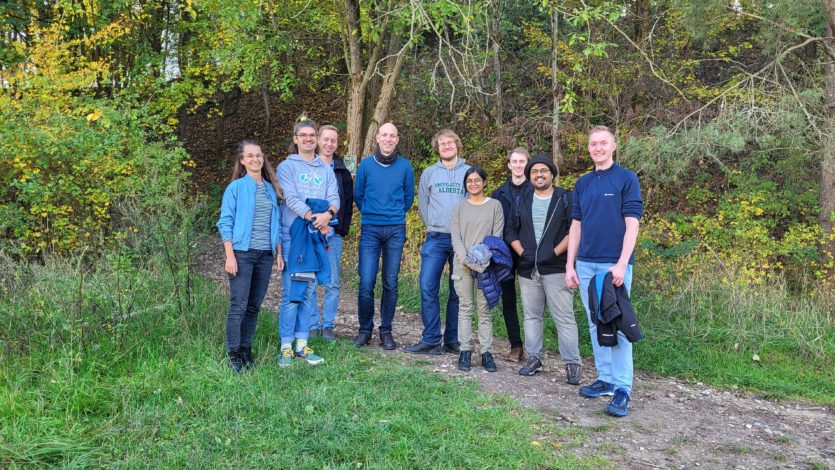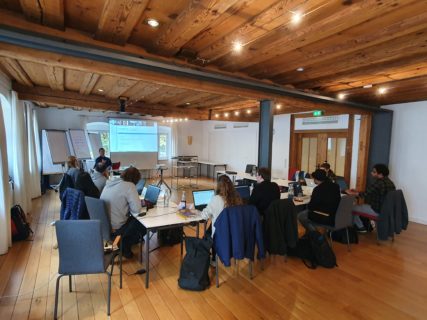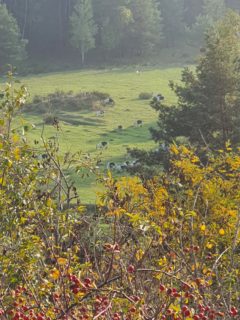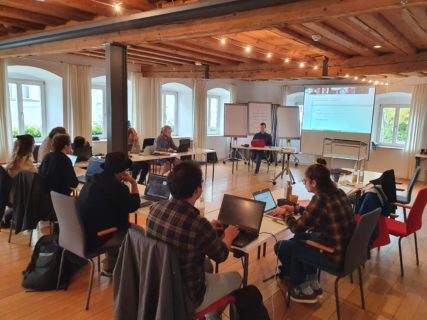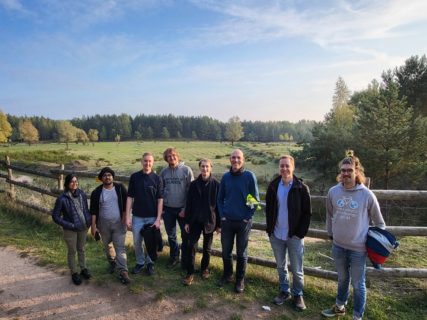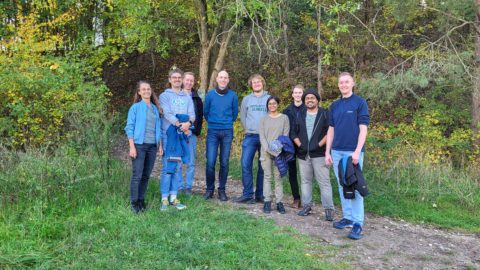How was the 1st FRASCAL Autumn School on ‚Software Development‘?
The researchers of all thirteen FRASCAL research projects independently organised a two-day hybrid autumn school on software development at the Hotel Fuchsbräu in Beilngries and on Zoom. The aim of this two-day event was not only to improve software development in C++, but also to re-establish social contacts after the pandemic years had subsided, which succeeded perfectly in the charming ambience of the medieval baroque town of Beilngries, located about an hour from Erlangen in the middle of the Altmühltal Nature Park directly on the Main-Danube Canal.
The 1st FRASCAL Autumn School was split into two parts:
On the first day, expert and full-time professor Prof. Dr.-Ing. Harald Köstler (FAU) introduced the doctoral researchers to the features of modern C++. He regularly teaches at the Chair of Computer Science 10, which develops various types of software, e.g. HPC simulation software for physical applications, but also software engineering for HPC including code generation and continuous benchmarking on HPC systems. He explained the powerful standard template library (STL) of C++ and gave useful tips for implementation.
On the second day Dr.-Ing. Klaus Iglberger (freelance C++ trainer and consultant) focused on different design patterns for software development in C++. Dr.-Ing. Klaus Iglberger is a former colleague of Prof. Köstler and one of the leading experts in software development in modern C++. In addition to his consulting work in the German industry, he is an international C++ trainer, initiator and lead designer of the C++ mathematical library Blaze, organiser of the Munich C++ user group, and initiator and co-chair of the Cppcon Software Design Track.
During his class on the second day, the young researchers were exemplarily introduced to different design patterns by solving a similar problem using different design patterns resulting in readable and efficient software, a major goal for sustainable software. As a result, we presented that there is no one solution for software development since each design pattern has its pros and cons. However, the students were taught to decide on their own to choose the best-suited design pattern for the software development of their application to solving their specific problems efficiently and correctly.
In the remaining evening hours, the participants set off for a walk to the Schloss Hirschberg, fresh air and good conversations sweetened the hard day’s work and a social get-together at the Hotel Fuchsbräu rounded off the programme.
The newly conceived series of FRASCAL schools was successfully opened with the workshop on „Software Development“ with new and profound programming knowledge and a strong team spirit.
Prior to this, on Wednesday, 12.10.2022, a hands-on workshop was held on the topic of „Archiving and Publishing FRASCAL Research Data“, which dealt with
– publishing research data on ZENODO,
– publishing software on ZENODO (possibly linked to Git repositories) and
– storage/archiving of research data on FRASCAL NAS.
The full-day workshop was rounded off with a hike to the Przewalski wild horse enclosure Tennenlohe and a joint dinner.
In particular, researchers who were unable to attend the 1st FRASCAL Autumn School due to family and work commitments found the opportunity here to exchange ideas and socialise with their colleagues.
Maurice Rohracker and Ann-Sophie Herzner
The programme of the 1st FRASCAL Autumn School can be downloaded here.
